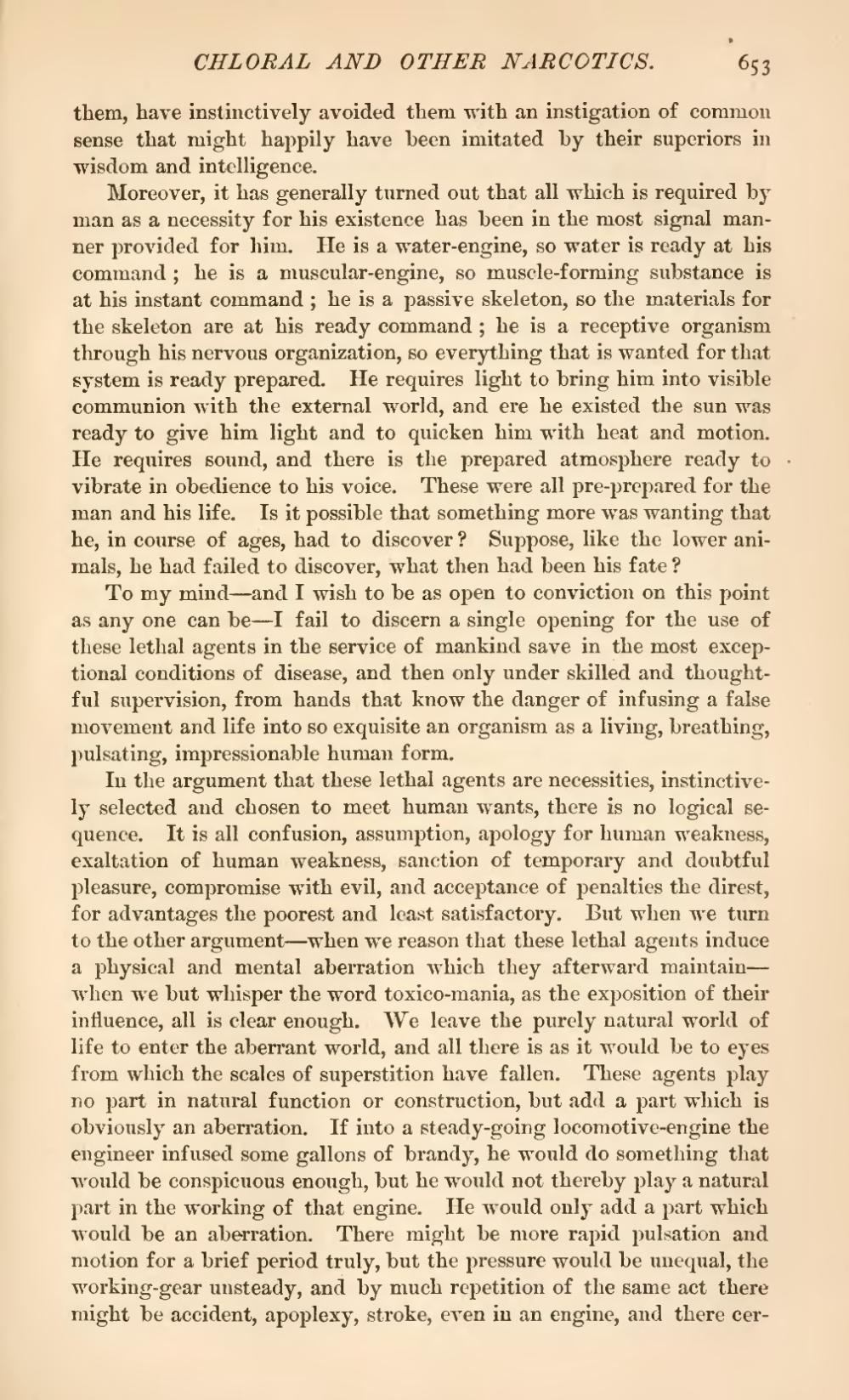them, have instinctively avoided them with an instigation of common sense that might happily have been imitated by their superiors in wisdom and intelligence.
Moreover, it has generally turned out that all which is required by man as a necessity for his existence has been in the most signal manner provided for him. He is a water-engine, so water is ready at his command; he is a muscular-engine, so muscle-forming substance is at his instant command; he is a passive skeleton, so the materials for the skeleton are at his ready command; he is a receptive organism through his nervous organization, so everything that is wanted for that system is ready prepared. He requires light to bring him into visible communion with the external world, and ere he existed the sun was ready to give him light and to quicken him with heat and motion. He requires sound, and there is the prepared atmosphere ready to vibrate in obedience to his voice. These were all pre-prepared for the man and his life. Is it possible that something more was wanting that he, in course of ages, had to discover? Suppose, like the lower animals, he had failed to discover, what then had been his fate?
To my mind—and I wish to be as open to conviction on this point as any one can be—I fail to discern a single opening for the use of these lethal agents in the service of mankind save in the most exceptional conditions of disease, and then only under skilled and thoughtful supervision, from hands that know the danger of infusing a false movement and life into so exquisite an organism as a living, breathing, pulsating, impressionable human form.
In the argument that these lethal agents are necessities, instinctively selected and chosen to meet human wants, there is no logical sequence. It is all confusion, assumption, apology for human weakness, exaltation of human weakness, sanction of temporary and doubtful pleasure, compromise with evil, and acceptance of penalties the direst, for advantages the poorest and least satisfactory. But when we turn to the other argument—when we reason that these lethal agents induce a physical and mental aberration which they afterward maintain—when we but whisper the word toxico-mania, as the exposition of their influence, all is clear enough. We leave the purely natural world of life to enter the aberrant world, and all there is as it would be to eyes from which the scales of superstition have fallen. These agents play no part in natural function or construction, but add a part which is obviously an aberration. If into a steady-going locomotive-engine the engineer infused some gallons of brandy, he would do something that would be conspicuous enough, but he would not thereby play a natural part in the working of that engine. He would only add a part which would be an aberration. There might be more rapid pulsation and motion for a brief period truly, but the pressure would be unequal, the working-gear unsteady, and by much repetition of the same act there might be accident, apoplexy, stroke, even in an engine, and there cer-
